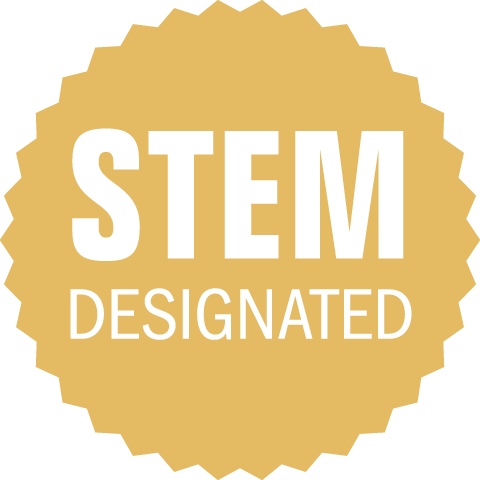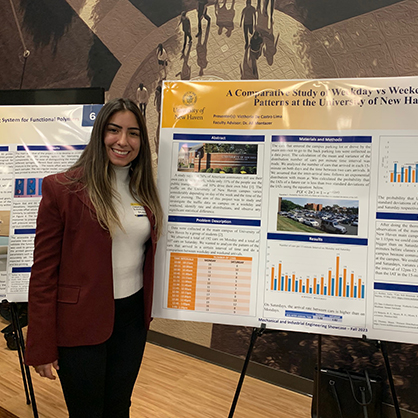

Recognized nationally as a leader in experiential education, the University of New Haven offers an intensive, 30-credit master’s degree program in mechanical engineering. Take advantage of hands-on study both inside and outside of the classroom with studies in thermodynamics, computer-aided engineering, advanced fluid mechanics, system vibrations, and more. Course study is enhanced through a number of interactive, state-of-the-art facilities including our instrumentation laboratory, thermo/fluids laboratory, solar testing and training laboratory, and more.
You will also have the opportunity to choose between a project or thesis option to complete your program with a focus on an area of research of your choosing. You will enjoy small, personalized classes with an average of 15 students per class.
Mechanical engineering students can choose the topic for their research projects. A group of students recently opted for the highly relevant and newsworthy topic of renewable, alternative energy sources for their project. Their work explored solar heating of domestic hot water systems, wind turbine energy, and heat pipe theory as it relates to evacuated solar collectors.
Our faculty are leaders and innovators in their fields, bringing both deep professional experience and academic rigor to the classroom.
Get an inside look at what differentiates the University of New Haven and how your experiences as a student will prepare you for success.




All University of New Haven students have access to the many resources available through the University’s Career Development Center, which has been named one of the best in the nation by The Princeton Review.
From career assessments, networking, and job shadowing to on-campus interviews and salary negotiation, the Career Development Center provides the skills and connections to identify a meaningful career and an opportunity to pursue your passion.
Learn MoreThe information below is designed to show the many possible careers you could pursue with your major. The research is provided by Encoura, the leading research and advisory firm focused exclusively on higher education. It includes median national salaries and industry growth projections over the next decade. Click here to view the full report.
Mechanical Engineers
5% Growth 2021-2030
Architectural and Engineering Managers
2% Growth 2021-2030
Aerospace Engineers
5% Growth 2021-2030
Topics include the study of ordinary and partial differential equations and their applications to mechanical engineering. Laplace transforms. Fourier analysis. Vector calculus. Complex variables. Use of contemporary software to complement and facilitate the analysis.
Kinematics and dynamics of single particles and systems of particles. Lagrangian formulation of dynamic systems. Rigid body motion in 3D. Applications to the analysis of feedback control systems. MATLAB applications throughout.
Analysis of stress and strain in two and three dimensions. Airy stress functions. Cartesian tensors and coordinate transformations using vector and index notation. Stress tensor and field equations. Applications to problems of torsion and bending. FEA applications included.
The use of modern analytical and experimental techniques to obtain solutions for various flow regimes. Introduction to the use of computational fluid dynamics (CFD) and particle imaging velocimetry (PIV) methods. Topics selected from the following: viscous fluids, boundary layer theory, turbulence, surface phenomena, shock waves, and gas dynamics.
The University of New Haven offers a wide variety of in-depth courses that create a transformational educational experience for our students. To view the complete list of courses you'll take while pursuing a Masters of Science in Mechanical Engineering, check out the Academic Catalog:

The Charger Blog
The event brought together alumni who are now leaders in their fields and students who are working on innovative research, matching ideas and ingenuity while creating opportunities for students to network.
An advanced degree from the University of New Haven will help you take your career to the next level. Each program offers convenient scheduling, personalized attention, and state-of-the-art facilities.
View Application Requirements
The University of New Haven Graduate School is an excellent value with reasonable tuition. Of course, you will still have bills to pay and the Financial Aid office can help.
Learn More